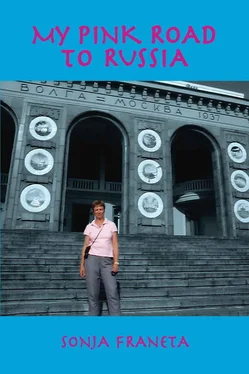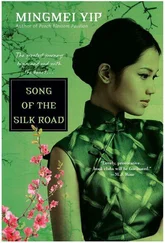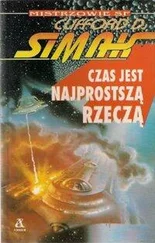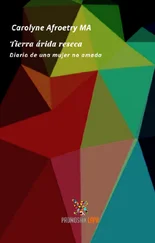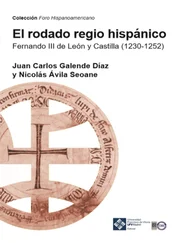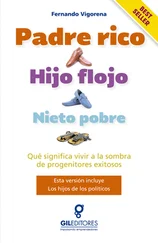I translated “Letter to an Amazon” with the help of my dear friend in Moscow, Elena Grigorievna Gusyatinskaya, a French translator and organizer of the highly regarded Moscow LGBT Archives. We worked in her apartment near the Rechnoy Vokzal metro station, using the original French and a Russian translation published in Paris in the 1960s. I enjoyed this process immensely—discussing with Lena Marina’s words and concepts in French and Russian and then finding the right words in English. For me as a writer, it truly was an exciting adventure and a new creation. Translating a poet’s works is like writing poetry. Tsvetaeva’s comment to Rilke rang true, that all writing is translation, in the sense that we are translating something going on in the mind and heart into words. And the same is true from one language to another.
At the end of “Letter to an Amazon” Marina writes:
Then again, one day, the one who was once young will learn that somewhere at the other end of this very earth the older one has died. At first she will want to write in order to know. But time hurries on—the letter is frozen in time. Desire remains desire. The “I want to know” becomes “I would like to,” then “I don’t want to anymore”—and so what? Since she has died. Since I, too, will die someday. And courageously, with the great honesty of indifference—For she has been dead within me, for me—already twenty years now?”
It’s not necessary to die in order to be dead.
Island. Summit. Solitary.
Weeping willow! Inconsolable willow! Willow—the body and soul of woman! Inconsolable neck of willow. Gray hair falling over her face, so she cannot see anything. Gray hair sweeping the face of the earth.
Water, air, mountains, trees are given to us in order to understand the human soul, so profoundly hidden away. When I see how a willow despairs, I understand Sappho.
Marina revised “Letter to an Amazon” in 1934, after the death of Sophia Parnok. Many of us followers believe she never got over her love for Sophia. Her anger and hurt at Sophia’s betrayal in going off with another woman is evident in this piece as well as other writings in the years preceding Marina’s suicide. In a letter written just before her death, about a dream from Sophia Polyakova’s book, Sunset Days of Yore, Marina says, “I saw her with her stupid woman-friend and her very naive poems.” Before this she said quite seriously that Sophia was the first great catastrophe of her life. Her disappointment with Russia and her life in emigration, her disconnectedness from writers, and perhaps many other factors, psychological and global, affected Marina at the agonizing moment of deciding to kill herself in 1941.
In the mid 1920s she wrote two great long poems—“Poem of the Mountain” and “Poem of the End”—essentially about grief and pain and isolation. In a memorable comparison, she wrote: “In this most Christian of worlds/ All poets are Jews.” (This recalls her statement in honor of Pushkin that all poets are Negroes.) Shortly after reading these poems, her friend Boris Pasternak, who thought so highly of Marina as an artist, tried to connect her with the great Rainer Maria Rilke. A triangular path of letters made their way from Pasternak in a Moscow suburb to Marina’s address in Paris to Rilke in Switzerland. Marina was introduced to a Rilke who loved Russian culture. And thus began their three-way intense letter writing and Marina’s own fantasy relationship with Rilke. The creative and spiritual level of these relationships—a kind of heart connection that became poetry—was quintessential Marina. Letters, poems, life were all one. Defying boundaries, with the Soviet Union closed off from Europe because of politics and the great distances at that time, these letters are part of her oeuvre.
Primarily a poet, Marina could not separate her work from love. She knew Rilke was not well but she asked him to come to Paris and sleep with her. When Rilke wrote his “Elegy for Marina Tsvetaeva” advocating for a kind of non-possessive love, she said in a 1926 letter, “All my life I have given myself away in poems—to all.” In the same letter she wrote that she loved him and that the “next dog you pet will be me.” In their correspondence, she said, “Writing poetry is itself translating, from the mother tongue into another,” declaring she was “not a Russian poet.” There is no nationality in poetry.
Her relationship with Rilke was not romance but a passion for a kindred spirit. In an analysis by psychologist Alice Miller, Rilke’s relationship with his mother is highlighted. She treated him like a girl because of her extreme grief following the death of her daughter, dressing him like a girl and calling him girls’ names. I have often wondered if his gender perception played into his connection with Marina. Marina’s actual knowledge of this aspect of his life may have been limited, but she clearly sensed and loved that feminine part of him, which in turn may have given him comfort. Her last postcard, crossing borders as Rilke died, read: “Dear Rainer, This is where I live. Do you still love me? Marina.” Always this question—do you still love me—especially while living in poverty and writing in isolation.
Life and love are not the same. Love can continue after life, without life. For Marina, there is a spirituality in love. It goes beyond the physical. When Marina writes in her long “Poem of the End,”
The body that once wanted to live/Wants to live no longer.
she rejects this idea in the next line with “Forgive me! I didn’t mean that!”—conscious of all that is going on around her, the condemned and “those playing chess.” Are we all pawns in the game of life? In view of the fact of her suicide, the lines are haunting, though written in 1924 and referring to the end of an affair with Konstantin Rodzevich. It is a poem of grief.
Marina’s metaphysical approach is similar to Rilke’s. Listen to his inscription to her in a copy of the Duino Elegies :
We touch each other; how? With wingstrokes,
With distances themselves we touch each other.
One sole poet lives, and now and then
The one who bore him and who bears him now will meet.
They touched on some other plane. They understood one another. Rilke was dying and Marina still had time left before her end in 1941. What determines one’s will to live? The body wants life. People need one other another. Writing was Marina’s all. Without analyzing why, Marina came to a dead end— tupik. And we have her writings.

Ksiusha and Lena and I were on our way to Pobeda, a small village outside Moscow where people had dachas. We were going to visit our mutual friends Lena and Sveta, who had lived there as a couple for twenty years in Soviet Russia. We made a stop to buy cheese, chocolates, canned fish, and wine to contribute to dinner.
We got back on the Kiev Road toward Pobeda. It was a long drive with possible traffic jams ahead. I had the back seat to myself, Lena drove, while Ksiusha from the front seat said, “I’d like to interview Sonja for a change. She’s always interviewing everybody. Why don’t you tell us the story of how you came out?”
“Yes, Sonja!” said Lena with a smile, her eyes riveted to the road, her hands gripping the wheel of her red Lada.
I felt flattered. “You mean I never told you my coming-out story?”
“No, tell us,” said Ksiusha, settling back in her seat. Lena turned off the radio.
“Well, it all started in Russia, you know. Here, in Moscow! I was on a trip in the summer of 1977 with some people from London, some young people, political people, and I met an American woman who would be my first woman lover. She was so beautiful in my eyes—tall with short dark hair, friendly, interested in people, broad shoulders and lovely full breasts. When I met her and she seemed to want to spend time with me, I remember thinking, ‘She’s so beautiful and confident, and I’m this boring married woman with glasses. Why would she want to speak with little old me?’
Читать дальше
